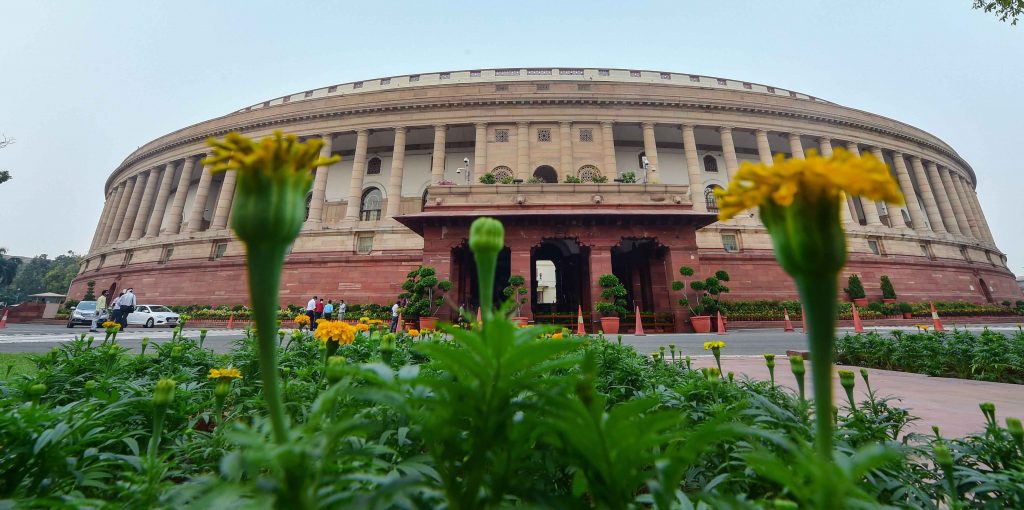New Delhi: Parliament Wednesday passed the Criminal Procedure (Identification) Bill, with Home Minister Amit Shah assuring the Rajya Sabha that biometric data of political detainees will not be collected and the proposed law will exclude brain mapping and polygraph test from its ambit.
The bill was passed by a voice vote after Shah sought to allay concerns raised by the Opposition, which claimed the draft law was “draconian”.
The Lok Sabha had passed the Criminal Procedure (Identification) Bill, 2022, which replaces the Identification of Prisoners Act, 1920, on Monday. The legislation will now be forwarded to the President for approval before it becomes law.
“Under section 3, the government of India has the right to make rules. We will define it and ensure that no person involved in a political agitation has to give (physical and biometric) measurements only for political agitation. But, if a political leader is arrested in a criminal case, then he will have to be at par with a citizen,” Shah said.
He said no measurements will be taken of any political person for violation of prohibitory orders promulgated by police.
While replying to a debate on the bill, Shah underlined the legislation is aimed at improving the conviction rate.
“It is aimed at building capacity for the police and forensic teams,” he said, adding the measure was intended to preclude the use of third degree methods (custodial torture) and making available the benefits of science and technology to prosecuting agencies.
Shah deplored none of the members rose to say conviction rates in the country are low and should be increased.
According to the minister, 66 out of 100 people charged with murder and 70 of 100 arraigned for dacoity get acquitted.
Shah said the bill has been brought to ensure that police and investigators remain two steps ahead of criminals.
“I want to assure you that this is not going to violate the privacy of anyone,” Shah said, seeking to assuage the concerns of opposition MPs.
The data collected will be completely secure, he said.
“No provision of this bill permits performing narco analysis, polygraph test and brain mapping of any prisoner,” the home minister said.
Shah said police will send fingerprint impressions to the National Crime Records Bureau (NCRB), which will share the name of the person with the investigators only if it matches with the records present in the database. Police will not have access to fingerprint data of others, he said.
“We will notify it after making a complete system. We will have to understand next generation crime and break their cycle as well. We want police, law enforcement agencies to be two steps ahead of criminals. This effort is to empower police,” he said.
Shah said the government intends to amend the Indian Penal Code, Criminal Procedure Code and Evidence Act, and has invited suggestions from public.
He said the government has created the Crime and Criminal Tracking Network & Systems (CCTNS), which has been adopted by 100 per cent police stations across the country.
The home minister asserted he had no apprehensions about the proposed law being abused.
“There has been misuse. We have fought and come out of it,” Shah said.
Responding to AAP member Sanjay Singh, who spoke about a false case allegedly filed against a party worker in Gujarat, Shah said he was no aware of that, but if you go to Bengal, you will lose your life, provoking a protest by TMC MPs.
Shah also accused the Left of killing 100 BJP members for political reasons.
Undeterred by the TMC protest, the home minister continued to attack its government in West Bengal, saying its acts had “changed even the harshest definition of the word Fascist”.
Participating in the discussion, Sukhendu Sekhar Roy (TMC) opposed the bill calling it “draconian”.
He said the government wants to use its “brute majority” to pass the bill that “violates the principle of natural justice”, and demanded that it be sent to a select committee for vetting.
Tiruchi Siva of the DMK supported his demand, claiming the government wants to armour itself with draconian laws which can be used even against political and social activists.
Sujeet Kumar (BJD) said the bill, even if passed, will not withstand judicial scrutiny.
Ram Gopal Yadav (SP) opposed the bill and noted it will be challenged in the Supreme Court even if it is passed in Parliament. A D Singh of the RJD also opposed the legislation.
The support for the government came from V Vijaysai Reddy (YSRCP), who said it will help improve the conviction rate, and attacked the Congress for foisting false cases against political adversaries.
A Navaneethakrishnan (AIDMK), a BJP ally, came out in support of the legislation, calling it a right intervention. He noted the legislation does not violate constitutional provisions. Ram Nath Thakur (JD-U), a partner in the ruling NDA, also supported the bill.
PTI
